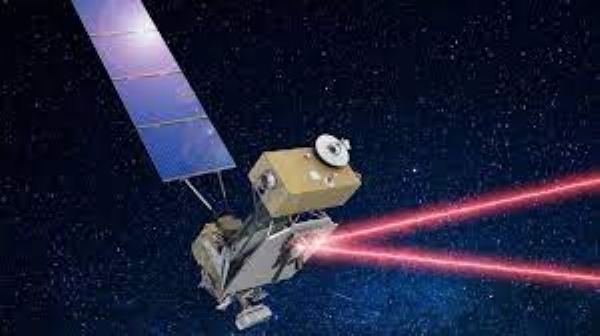NASA set to launch a new Laser Test to speed up space communications
The technology will be launched into space aboard a United Launch Alliance Atlas V rocket during the Space Test Program Satellite-6 (STPSat-6) mission by the Department of Defense.
Total Views |
Florida, November 23: NASA is set to test a laser technology in space. This mission is aimed at speeding up space communications. The Laser Communications Relay Demonstration (LCRD) will be launched on December 4 after a two-year delay.

The technology will be launched into space aboard a United Launch Alliance Atlas V rocket during the Space Test Program Satellite-6 (STPSat-6) mission by the Department of Defense. The mission is expected to be launched from Cape Canaveral Space Force Station in Florida.
Despite the delay, investigators suggest that the LCRD will be launched just in time to benefit the Artemis manned Moon-landing mission that is scheduled to be executed in 2025.
NASA elaborated on the use of lasers in space communication. It said Laser technology in space will allow 10–100 times more data sent back to Earth, as against radio frequencies. This technology will also prevent overcrowding of the radio frequency spectrum. LCRD is significant as NASA and the commercial sector are planning several space missions using Artemis as well as Commercial Lunar Payload Services programme and planned Gateway space station.
The laser technology mission will travel to the geosynchronous orbit at 22,236 miles, but won’t reach the moon. The test will be conducted for a period of at least two years.
If missions began to use lasers, it will also prevent overcrowding of the radio frequency spectrum, said Badri Younes, the deputy associate administrator of NASA's Space Communications and Navigation programme. The space agency even shared a video on the NASA Goddard YouTube channel to show how the LCRD will work.
The plan for the laser mission was approved in 2011. However, in 2018 it got a warning from ‘Government Accountability Office’ regarding some changes in its scope and design. Later, mission got postponed due to covid-19 pandemic induced restrictions.
.
.